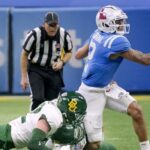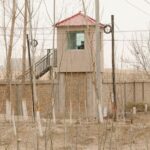
AT&T Inc. T 3.37% and Verizon Communications Inc. VZ 0.92% said they agreed to delay their rollout of a new 5G service for two weeks, reversing course after previously declining a request by U.S. transportation officials.
AT&T said late Monday that the company had voluntarily agreed to an additional two-week delay, at the request of the U.S. Transportation Secretary Pete Buttigieg. Verizon VZ 0.92% also said it had agreed to a two-week delay that would ensure the new service would go live in January.
The two companies on Sunday had rebuffed a Dec. 31 request by Mr. Buttigieg and FAA Administrator Steve Dickson to delay their rollout of a new 5G signal for up to two weeks to allow aviation regulators to address safety concerns at airports on a rolling basis. The companies said they had already agreed to delay the rollout by a month to Jan. 5.
The sudden turn of events on Monday came as the Federal Aviation Administration was preparing to soon issue flight restrictions that U.S. airlines worried would significantly disrupt air-travel and cargo shipments around the country, people familiar with the matter said.
Airlines for America, which represents major passenger and cargo carriers, had planned to ask a federal court to block the 5G rollout slated for Wednesday, people familiar with the matter said. The trade group held off once both telecom carriers agreed to further delay their 5G rollout until Jan. 19, these people said.
U.S. airlines have said that their operations would face significant disruption if the FAA imposes flight restrictions to address the agency’s safety concerns. The FAA and aviation groups worry the new 5G signals, frequencies known as the C-band, could interfere with key cockpit safety systems.
The FAA said it thanked AT&T and Verizon for agreeing to the voluntary delay and for their proposals to address safety concerns around airports. “We look forward to using the additional time and space to reduce flight disruptions associated with this 5G deployment,” the agency said.
The agency said the wireless companies have offered proposals comparable to those used in some European countries. And while the agency said U.S. standards and operating environments are unique, it added that such proposals could reduce disruptions to U.S. aviation. The FAA said the safeguards would be put in place for six months around 50 airports.
On Sunday, the cellphone carriers offered their own counterproposal modeled after France’s approach to address wireless safety concerns. The U.S. carriers said they would dim the power of their new 5G service for six months, beyond levels the companies had previously offered to assuage the FAA’s concerns.
In rejecting the FAA’s earlier request, AT&T and Verizon’s chief executives wrote in a letter Sunday: “If U.S. airlines are permitted to operate flights every day in France, then the same operating conditions should allow them to do so in the United States.”
The FAA is concerned that the new 5G signals could interfere with radar altimeters, devices that measure the distance between aircraft and the ground. They also feed data to various systems used to help planes land in bad weather and avoid crashes.
Verizon, the largest U.S. cellphone carrier in terms of subscribers, has the most capital at stake in the standoff. It spent more than $45 billion last year to acquire the wireless licenses in question and several billion more on payments to quickly clear away satellite operators that would have created interference with cellphone towers on the ground. The carrier was scheduled to deliver an update to the media and investors Tuesday that was expected to highlight its network’s quality.
No. 2 carrier T-Mobile US Inc. also secured spectrum in the same federal auction, but the licenses it bought won’t be available until late 2023 at the earliest. Its fifth-generation network already uses a swath of spectrum it acquired through its 2020 merger with rival Sprint that isn’t a part of the latest aviation dispute.
5G and Air Traffic
More WSJ coverage on the debate over wireless frequencies and aviation, selected by the editors.
Write to Andrew Tangel at [email protected] and Drew FitzGerald at [email protected]
Copyright ©2022 Dow Jones & Company, Inc. All Rights Reserved. 87990cbe856818d5eddac44c7b1cdeb8
Appeared in the January 4, 2022, print edition as ‘AT&T, Verizon Delay 5G Rollouts.’








